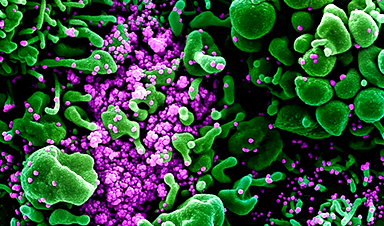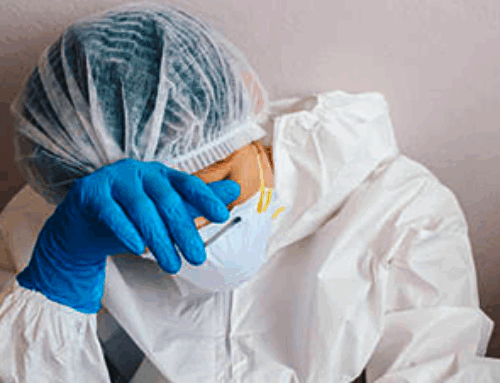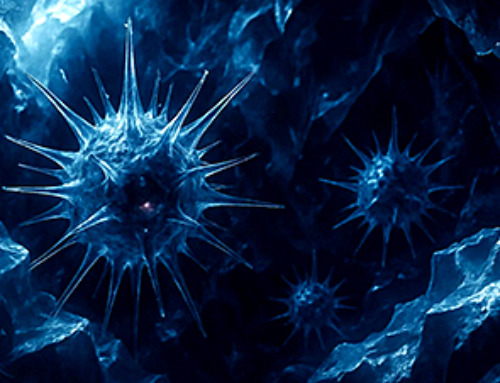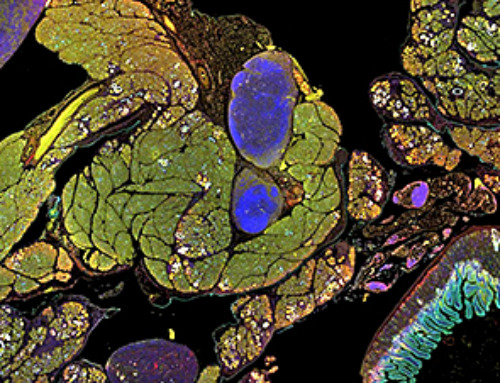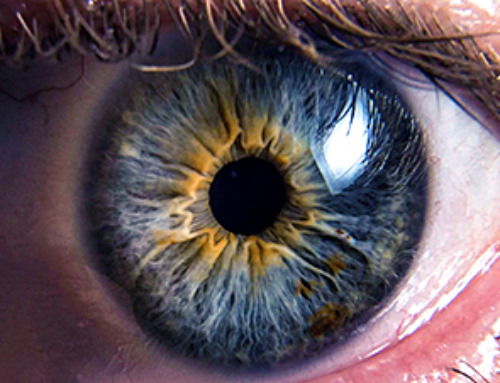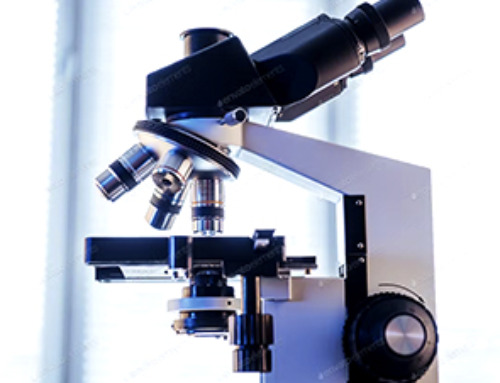A virtual workshop in November 2022 highlighted the importance of developing mucosal vaccines for SARS-CoV-2 that could reduce transmission and infection. Participants discussed challenges and priorities, such as identifying protection correlates, improving animal models, and determining delivery methods. Though no COVID-19 mucosal vaccines have been authorized in the US or Europe, the workshop concluded that research in this area could yield benefits for both COVID-19 and other diseases.
In November 2022, the National Institute of Allergy and Infectious Diseases (NIAID) co-hosted a virtual workshop on the importance and challenges of developing mucosal vaccines for SARS-COV-2. The highlights of this workshop have now been published as a report in npj Vaccines.
Although vaccines currently available for COVID-19 are usually effective at preventing severe disease, hospitalizations and death, researchers recognize the need for improvement. A vaccine more effective at preventing transmission or infection with SARS-CoV-2 could reduce overall replication of the virus and associated disease burden. Because SARS-CoV-2 enters the body and is transmitted via the respiratory tract, a vaccine to promote a mucosal immune response in the respiratory tract could be better at blocking transmission and infection. Although at least 44 mucosal vaccines are currently in preclinical development, and several more are in clinical development or authorized for use in other countries, no COVID-19 mucosal vaccines have been authorized for use by regulatory agencies in the United States or Europe.
For instance, new correlates of protection must be identified and verified to evaluate whether a vaccine improves recipients’ mucosal immune responses to SARS-CoV-2, and to facilitate clinical testing and regulatory approval. Improved animal models are needed to help researchers develop potential mucosal vaccines, according to the report. Careful clinical design is needed to assess the unique safety concerns related to mucosal vaccines and to appropriately evaluate whether a vaccine can block transmission of the virus. Trial design also needs to account for how vaccines will be used. Since most people have either received a SARS-CoV-2 vaccine or had a natural infection, mucosal vaccines likely will be used as boosters, and researchers will need to know how well vaccines function in people who have some prior immunity. The means of delivery also must be considered: nasal sprays, pills, liquids taken by mouth, and even nebulizers could deliver a vaccine more directly to the respiratory system, but each of these poses unique challenges to manufacture, test and deliver.
Despite these and other challenges, attendees of the workshop were optimistic about the future of mucosal vaccines for COVID-19. Considering the potential benefits that a successful candidate could bring, they concluded that research needed to further mucosal vaccine development is a priority. Such research also could even lead to improved vaccines for other diseases, such as influenza, respiratory syncytial virus (RSV) or tuberculosis, in addition to advancing COVID-19 vaccinology.
News
Studies detail high rates of long COVID among healthcare, dental workers
Researchers have estimated approximately 8% of Americas have ever experienced long COVID, or lasting symptoms, following an acute COVID-19 infection. Now two recent international studies suggest that the percentage is much higher among healthcare workers [...]
Melting Arctic Ice May Unleash Ancient Deadly Diseases, Scientists Warn
Melting Arctic ice increases human and animal interactions, raising the risk of infectious disease spread. Researchers urge early intervention and surveillance. Climate change is opening new pathways for the spread of infectious diseases such [...]
Scientists May Have Found a Secret Weapon To Stop Pancreatic Cancer Before It Starts
Researchers at Cold Spring Harbor Laboratory have found that blocking the FGFR2 and EGFR genes can stop early-stage pancreatic cancer from progressing, offering a promising path toward prevention. Pancreatic cancer is expected to become [...]
Breakthrough Drug Restores Vision: Researchers Successfully Reverse Retinal Damage
Blocking the PROX1 protein allowed KAIST researchers to regenerate damaged retinas and restore vision in mice. Vision is one of the most important human senses, yet more than 300 million people around the world are at [...]
Differentiating cancerous and healthy cells through motion analysis
Researchers from Tokyo Metropolitan University have found that the motion of unlabeled cells can be used to tell whether they are cancerous or healthy. They observed malignant fibrosarcoma cells and [...]
This Tiny Cellular Gate Could Be the Key to Curing Cancer – And Regrowing Hair
After more than five decades of mystery, scientists have finally unveiled the detailed structure and function of a long-theorized molecular machine in our mitochondria — the mitochondrial pyruvate carrier. This microscopic gatekeeper controls how [...]
Unlocking Vision’s Secrets: Researchers Reveal 3D Structure of Key Eye Protein
Researchers have uncovered the 3D structure of RBP3, a key protein in vision, revealing how it transports retinoids and fatty acids and how its dysfunction may lead to retinal diseases. Proteins play a critical [...]
5 Key Facts About Nanoplastics and How They Affect the Human Body
Nanoplastics are typically defined as plastic particles smaller than 1000 nanometers. These particles are increasingly being detected in human tissues: they can bypass biological barriers, accumulate in organs, and may influence health in ways [...]
Measles Is Back: Doctors Warn of Dangerous Surge Across the U.S.
Parents are encouraged to contact their pediatrician if their child has been exposed to measles or is showing symptoms. Pediatric infectious disease experts are emphasizing the critical importance of measles vaccination, as the highly [...]
AI at the Speed of Light: How Silicon Photonics Are Reinventing Hardware
A cutting-edge AI acceleration platform powered by light rather than electricity could revolutionize how AI is trained and deployed. Using photonic integrated circuits made from advanced III-V semiconductors, researchers have developed a system that vastly [...]
A Grain of Brain, 523 Million Synapses, Most Complicated Neuroscience Experiment Ever Attempted
A team of over 150 scientists has achieved what once seemed impossible: a complete wiring and activity map of a tiny section of a mammalian brain. This feat, part of the MICrONS Project, rivals [...]
The Secret “Radar” Bacteria Use To Outsmart Their Enemies
A chemical radar allows bacteria to sense and eliminate predators. Investigating how microorganisms communicate deepens our understanding of the complex ecological interactions that shape our environment is an area of key focus for the [...]
Psychologists explore ethical issues associated with human-AI relationships
It's becoming increasingly commonplace for people to develop intimate, long-term relationships with artificial intelligence (AI) technologies. At their extreme, people have "married" their AI companions in non-legally binding ceremonies, and at least two people [...]
When You Lose Weight, Where Does It Actually Go?
Most health professionals lack a clear understanding of how body fat is lost, often subscribing to misconceptions like fat converting to energy or muscle. The truth is, fat is actually broken down into carbon [...]
How Everyday Plastics Quietly Turn Into DNA-Damaging Nanoparticles
The same unique structure that makes plastic so versatile also makes it susceptible to breaking down into harmful micro- and nanoscale particles. The world is saturated with trillions of microscopic and nanoscopic plastic particles, some smaller [...]
AI Outperforms Physicians in Real-World Urgent Care Decisions, Study Finds
The study, conducted at the virtual urgent care clinic Cedars-Sinai Connect in LA, compared recommendations given in about 500 visits of adult patients with relatively common symptoms – respiratory, urinary, eye, vaginal and dental. [...]
